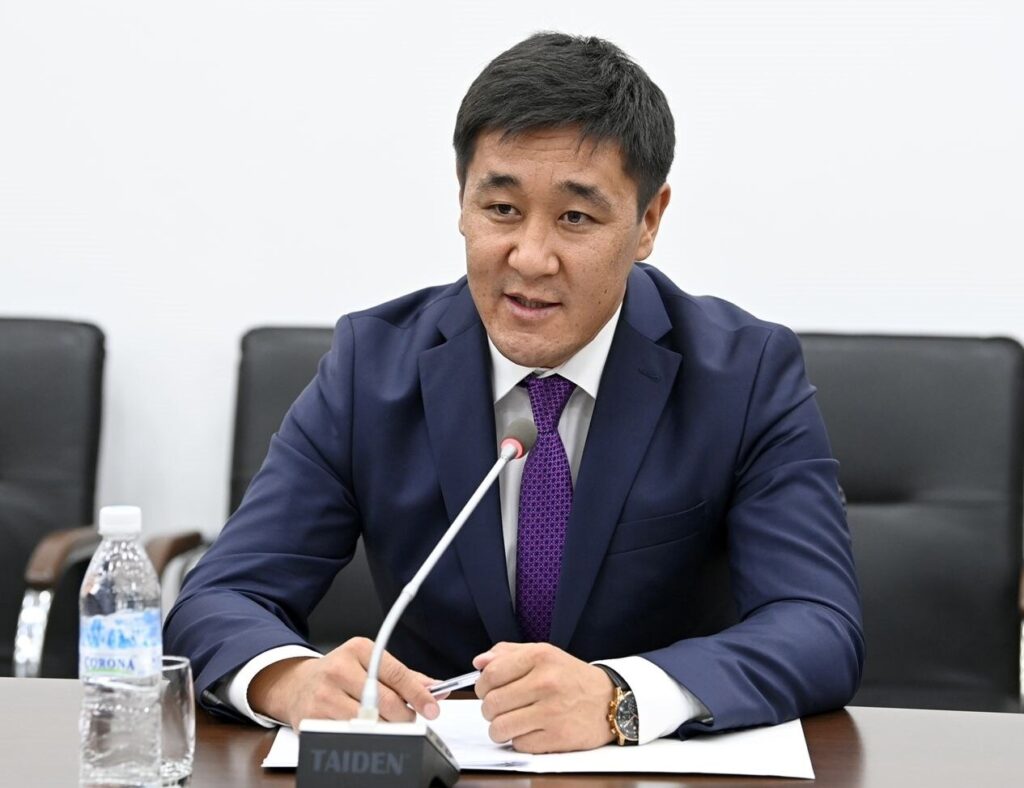An independent probe in Kyrgyzstan has concluded that the National Television and Radio Corporation (NTRC) created a network of fake social accounts to promote the government’s policies and attack its critics.
The claim has been denied by state TV as well as the office of President Sadyr Japarov.
The investigation — Does The President Need The Support Of Fake Accounts? — was conducted by the Checkit Media group, which includes several independent media outlets in Kyrgyzstan.
The video report said that pro-government reportage and comments have increased on Kyrgyz social media since the taxpayer-funded NTRC opened a special department to disseminate information online. The department — SMM and New Media — was launched in November.
Pro-government content has been posted and shared both on the personal social media accounts of NTRC employees and on fake accounts, the Checkit Media report said. It also claimed that the accounts of state TV workers are closely associated with the “troll accounts.”
The fake accounts have been particularly active in promoting the government’s narrative on several high-profile court cases against government critics, independent journalists, and nongovernmental organizations, the report said.
For example, the troll accounts actively commented on the infamous Kempir-Abad case, a legal action against 27 activists, journalists, and politicians who opposed Japarov’s border demarcation deal with Uzbekistan.
Who’s Behind The ‘Troll Factory’?
Checkit Media said the SMM department is headed by “Usubaly Mabmetov, who frequently shares social media posts praising the authorities.”
Citing anonymous sources, it also claimed that “the assignments come from” Daiyrbek Orunbekov, the head of the Information Policy Department in the presidential administration.
Orunbekov has previously been linked to an alleged troll factory created to support the family of controversial former state customs agency deputy chief Raiymbek Matraimov, a central figure in a large-scale money-laundering case involving tens of millions of dollars, the report said.
Orunbekov denied the claim, calling it slanderous. He told RFE/RL that Checkit Media’s claims are based on an unconvincing anonymous source and that it “doesn’t inspire confidence.”
“[Checkit Media] took the liberty of labeling state TV journalists as trolls just because they share materials on positive developments in the country,” the official told RFE/RL.
He accused Checkit Media journalists of “looking for negativity” and seeking to damage the government’s image.
The NTRC issued a statement to “officially deny” the claim that its SMM and New Media department “allegedly employs trolls who disseminate their opinions through fake accounts.”
An NTRC employee, Chynara Kaparova, took to Facebook to respond to the Checkit Media probe.
“It is wrong to launch an information attack, saying that ‘millions of funds from the state budget are being spent on the NTRC,’ and then point the finger only on the New Media department. This is deceiving the public,” she wrote.
Old Phenomenon
Online trolls — linked to various political forces and authorities — have become increasingly prevalent in Kyrgyzstan in recent years.
Several media outlets in Kyrgyzstan had in the past investigated such phenomenon. The probes demonstrated how the fake accounts were used to shape public opinion on certain political events or to purposefully target individuals to damage their public image.
“Fake accounts are being created and used not only by those who are in power, but also by anyone who has some degree of influence or money,” said Kyrgyz journalist Mirzhan Balybaev.
Balybaev said that it’s not easy to eliminate the use of trolls and fakes, as it’s a “convenient” method for their creators to spread their message.
He added that an effective way to fight the fakes and trolls is to raise awareness about them within society, so people can distinguish between fake and true content and reporting.
Checkit Media was created in February as part of a project to fight against fake accounts and the manipulation of information. It groups the media outlets April TV, Bashtan Bashta, Bulak.kg, Factcheck.kg, Media.kg, Mediahub, and PolitKlinika.
Source : RFERL


